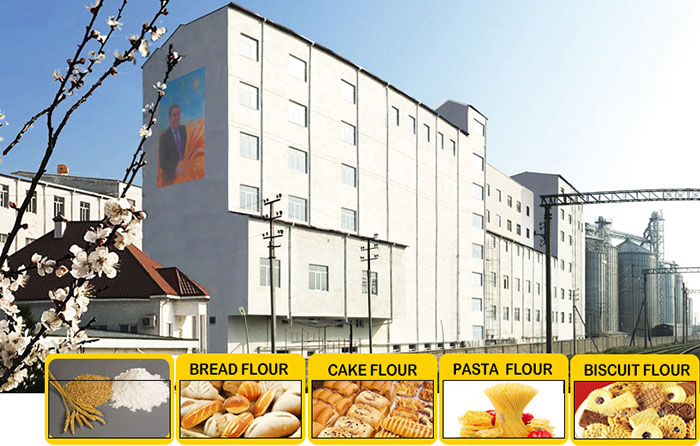Flour milling machines have played a crucial role in revolutionizing the production of flour, a staple ingredient in many global cuisines. These machines have significantly enhanced efficiency, precision, and versatility in the milling process, resulting in improved quality and quantity of flour production. In this article, we will explore the benefits and applications of flour milling machines, showcasing their pivotal role in meeting the ever-growing demand for flour and its derivatives.

Flour Milling Equipment have brought unprecedented levels of efficiency and productivity to the milling industry. With advanced automation, these machines can handle large quantities of grains, such as wheat, corn, and rice, in a continuous and streamlined manner. They can process the raw grains into flour quickly and efficiently, reducing the time and labor required for manual milling processes. This increased efficiency translates into higher production volumes and improved profitability for flour mills.
One of the key advantages of flour milling machines is their ability to achieve precise grinding and milling of grains. These machines employ various mechanisms, such as roller mills, stone mills, and hammer mills, to break down the grains into the desired particle size. The precise control over the grinding process ensures consistent quality and uniformity in the flour produced, meeting the strict standards and specifications of the food industry.
Flour milling machines find extensive applications in diverse industries beyond traditional flour production. The versatility of these machines allows for the production of a wide range of flour types, including all-purpose flour, whole wheat flour, and specialty flours like gluten-free or organic flour. Additionally, flour milling machines are used in the production of semolina, maize meal, and other grain-based products, catering to the unique requirements of various cuisines and consumer preferences.
Recommended article:Flour milling machines contribute to enhanced food safety and hygiene standards. With enclosed systems and controlled environments, these machines minimize the risk of contamination during the milling process. The advanced cleaning and sanitation features ensure that the final product is free from foreign particles, pathogens, and impurities. This commitment to food safety aligns with stringent regulations and meets the expectations of consumers who prioritize clean and safe food products.
Flour milling machines are available in various designs and configurations, allowing for customization based on specific milling requirements. Manufacturers can choose machines with different capacities, processing capabilities, and automation levels to suit their production needs. The adaptability of flour milling machines enables flour mills to scale their operations, adjust to market demands, and optimize resource utilization, leading to greater operational efficiency and cost-effectiveness.
Flour milling machines have evolved with technological advancements, incorporating features that further improve performance and productivity. Modern machines often include advanced sensors, computerized controls, and real-time monitoring systems. These technological innovations allow for precise control over the milling process, ensuring optimal grain-to-flour conversion rates, energy efficiency, and consistent quality.
Flour milling machines have revolutionized the production of flour, providing increased efficiency, precision, and versatility to meet the growing demand for this essential food staple. These machines have significantly improved the milling process, resulting in consistent, high-quality flour that adheres to strict industry standards. With their customizable designs, advanced technologies, and focus on food safety, flour milling machines enable flour mills to optimize their operations, enhance productivity, and meet the diverse needs of consumers. Embrace the power of flour milling machines to ensure a steady supply of quality flour, contributing to the sustenance and nourishment of people worldwide.
Recommended article:525
0
0
All Comments (0)
Previous: Enhancing Safety and Quality Control: The Glove Leak Detection Machine
Next: Air Bubble Film Extrusion Machine: Protecting Products with Innovative Packaging
Related Articles
If you are interested in sending in a Guest Blogger Submission,welcome to write for us!
Comments